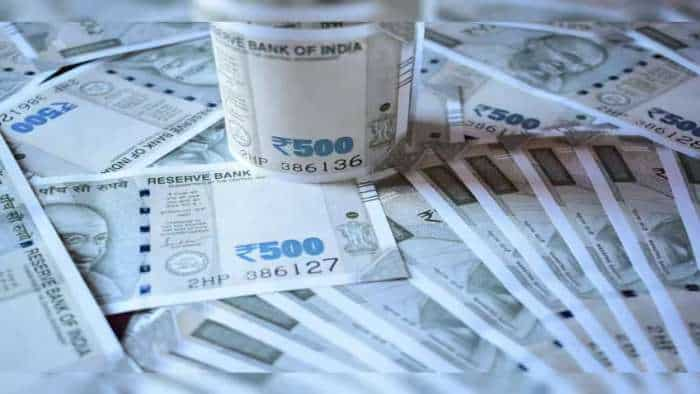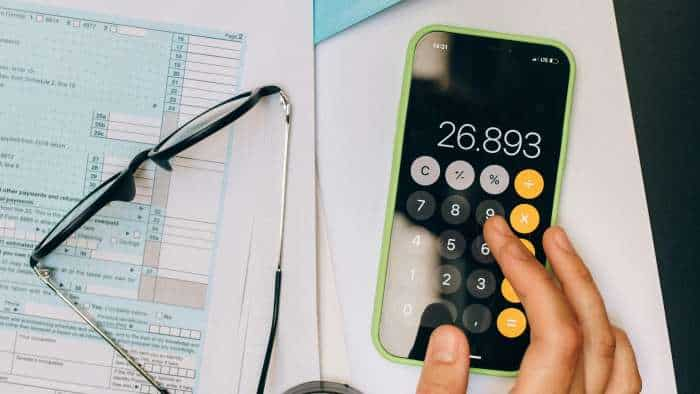Post Office Monthly Income Scheme: How to earn Rs 5,550, Rs 7,400 or Rs 9,250 monthly income by investing in this post office scheme; calculations will surprise you
Monthly Income Scheme (MIS) at Post Office: Did you know that you can earn monthly interest ranging from Rs 6 to Rs 9,250 for five years against a one-time deposit to the tune of Rs 1,000-15,00,000 in a special, guaranteed income small savings scheme at the post office? Formally known as the National Savings Monthly Income Account (MIS), this savings plan enables depositors to park their funds to earn interest every month for the entire maturity period of five years. And what is the interest rate of the MIS plan? Currently, the scheme delivers a return of 7.4 per cent (paid monthly). Read on to learn all about this investment plan with examples.
)
Post Office Monthly Income Scheme (MIS), Post Office Monthly Income Account: Did you know that the National Savings Monthly Income Scheme (MIS), popularly known as the Post Office Monthly Income Scheme, is one of the several government-backed, guaranteed-income schemes that enable investors to save for a regular monthly income upon maturity? As of the quarter ending March 31, investment in a Post Office Monthly Income Scheme account delivers a return of 7.4 per cent, according to the India Post website, indiapost.gov.in.
So what kind of monthly rewards can you expect from this post office small savings scheme? The post office MIS scheme enables investors to get a maximum monthly income of Rs 5,550 in a single account and Rs 9,250 in a joint account, according to the post office website.
Here are 10 key things to know about the Post Office Monthly Income Scheme (MIS):
1. How does it work?
The Monthly Income Scheme enables an investor to make a one-time deposit to receive the return spread over monthly payments that essentially work like a monthly pension.
ALSO READ | SIP+SWP: Start with 5K SIP and then get Rs 93.80K pension for 30 years; know calculations
This is in contrast to drawing the sum of principal and applicable accumulated interest in a single payment at the end of the maturity period as in the case of a fixed deposit.
2. How many individuals can invest jointly?
The fixed monthly pension scheme allows up to three adults to invest jointly.
3. Investment limit
One can invest a minimum of Rs 1,000 in the Monthly Income Scheme, and a maximum of Rs 9 lakh singly and Rs 15 lakh jointly.
4. Interest rate
Just like all small savings scheme, the interest rate applicable to the Monthly Income Scheme is reviewed every quarter. For the final quarter of the financial year 2023-24, the MIS interest rate stands at 7.4 per cent, compounded annually and paid monthly.
5. When is the interest paid?
The interest is paid on the completion of a month from the date of opening, and so on till maturity. Any unclaimed interest in the account does not yield additional interest.
6. Maturity period
The Monthly Income Scheme account comes with a maturity period of five years.
7. What happens after maturity?
Upon maturity, the monthly rewards stop and the principal is returned to the depositor.
8. Is premature withdrawal permitted?
While no deposit is allowed to be withdrawn before the completion of one year from the date of deposit, a premature closure before the full maturity period of the scheme leads to certain deductions from the principal.
A closure:
- Between one and three years from the date of account opening leads to a deduction of 2.0 per cent
- Between three and five years from the date of account opening leads to a deduction of 1.0 per cent
ALSO READ: How NPS investment can help you pay zero tax on Rs 10 lakh salary; examples included
9. How to apply for a premature closure?
A depositor can apply for a premature closure by submitting a prescribed application form along with the passbook at the concerned post office branch.
10. Examples
And now, the calculations. Here are a few examples to illustrate what kind of investment you need to receive your desired monthly income under the Post Office Monthly Income Scheme:
| One-time deposit | Monthly income |
| Rs 10,000 | Rs 62 |
| Rs 20,000 | Rs 123 |
| Rs 30000 | Rs 185 |
| Rs 50,000 | Rs 308 |
| Rs 75,000 | Rs 462.5 |
| Rs 1,00,000 | Rs 617 |
| Rs 1,50,000 | Rs 925 |
| Rs 1,75,000 | Rs 1,079 |
| Rs 2,00,000 | Rs 1,233 |
| Rs 2,50,000 | Rs 1,542 |
| Rs 3,00,000 | Rs 1,850 |
| Rs 4,00,000 | Rs 2,467 |
| Rs 5,00,000 | Rs 3,083 |
| Rs 7,00,000 | Rs 4,317 |
| Rs 8,00,000 | Rs 4,933 |
| Rs 9,00,000 | Rs 5,550 |
| Rs 10,00,000 | Rs 6,167 |
| Rs 10,50,000 | Rs 6,475 |
| Rs 11,00,000 | Rs 6,783 |
| Rs 11,50,000 | Rs 7,092 |
| Rs 12,00,000 | Rs 7,400 |
| Rs 12,50,000 | Rs 7,708 |
| Rs 13,00,000 | Rs 8,017 |
| Rs 13,50,000 | Rs 8,325 |
| Rs 14,00,000 | Rs 8,633 |
| Rs 14,50,000 | Rs 8,942 |
| Rs 15,00,000 | Rs 9,250 |
The examples given above are indicative based on the current interest rate and the compounding method as per the India Post website.
ALSO READ: NPS: How Rs 10,000 monthly contribution may get you Rs 1.53 lakh pension a month; know calculations
Get Latest Business News, Stock Market Updates and Videos; Check your tax outgo through Income Tax Calculator and save money through our Personal Finance coverage. Check Business Breaking News Live on Zee Business Twitter and Facebook. Subscribe on YouTube.
RECOMMENDED STORIES

Power of Compounding: In how many years, investors can achieve Rs 6.5 cr corpus with monthly salaries of Rs 20,000, Rs 25,000, and Rs 30,000?

18x15x12 SIP Formula: In how many years, Rs 15,000 monthly investment can grow to Rs 1,14,00,000 corpus; know calculations

PPF For Regular Income: How you can get Rs 78,000 a month tax-free income through Public Provident Fund investment?
10:02 AM IST











 Post Office FD Interest Rate: See how Rs 1,50,000 investment grows in 1-year, 2-year, 3-year, 5-year deposits (with examples)
Post Office FD Interest Rate: See how Rs 1,50,000 investment grows in 1-year, 2-year, 3-year, 5-year deposits (with examples) Post Office Schemes For Women: See how Rs 1,00,000 investment grows in Sukanya Samriddhi, Mahila Samman Savings accounts over years (with examples)
Post Office Schemes For Women: See how Rs 1,00,000 investment grows in Sukanya Samriddhi, Mahila Samman Savings accounts over years (with examples) Post Office FD & RD Investment Plans: These 5 schemes offer up to 7.5% guaranteed return; compare investment limits, other key aspects here
Post Office FD & RD Investment Plans: These 5 schemes offer up to 7.5% guaranteed return; compare investment limits, other key aspects here 8 post office investment schemes that offer over 7% guaranteed return
8 post office investment schemes that offer over 7% guaranteed return Post Office Savings Scheme Interest Rate: See how fast your Rs 1,00,000, Rs 2,00,000 investments grow in KVP, Mahila Samman, NSC deposit schemes
Post Office Savings Scheme Interest Rate: See how fast your Rs 1,00,000, Rs 2,00,000 investments grow in KVP, Mahila Samman, NSC deposit schemes